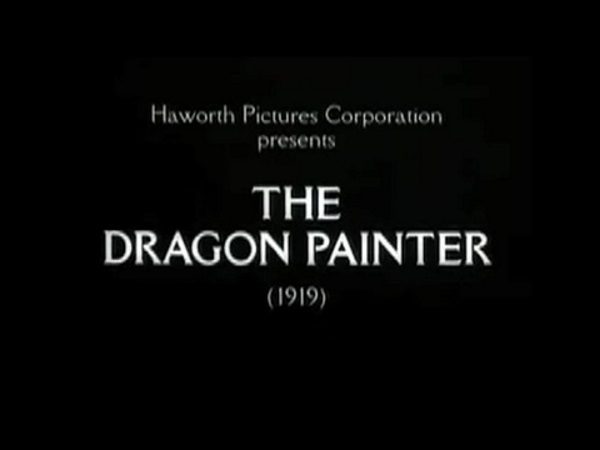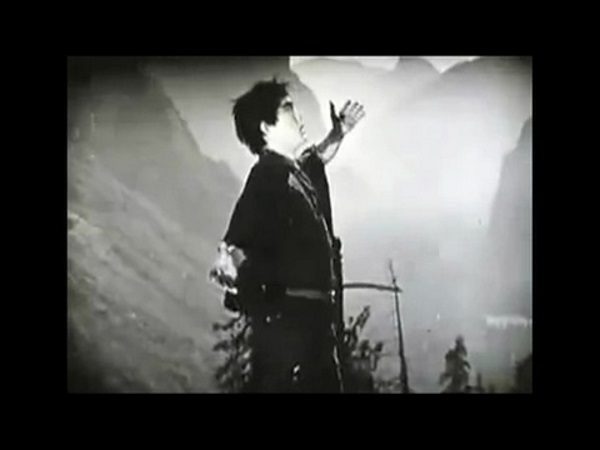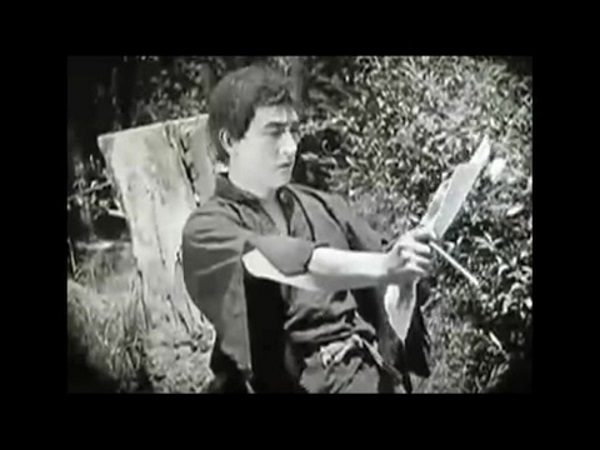The Dragon Painter

1919![]()
Written by Richard Schayer (as E. Richard Schayer)
Based on the Novel by Mary McNeil Fenollosa
Directed by William Worthington

It’s CAAMFest time again, so Tars must chart out a bunch of film he wants to see vs. the actual amount of real world time that he has to go to see the films. This year there was a few Sophie’s Choices among films playing at similar times where I was unable to go to the other shows, so in the end I ended up with three screenings, all in one day! So I’ll make sure all three reviews get put up in one week! First up is 1919’s The Dragon Painter, a silent film presented with a live score!
The Dragon Painter was a production of Haworth Pictures Corporation, which box office star Sessue Hayakawa formed with actor/director William Worthington (hence the name of the company!) This is an important piece of film history, as the big deal is we have Japanese characters being played by Japanese actors, and they aren’t playing stereotypical villain characters, which was the style of the time (and partily how Sessue Hayakawa gained fame!) Hayakawa’s life was amazing, and deserves more focus than just the intro paragraphs of a review of one of his film.
It is easy to see in The Dragon Painter why Hayakawa was so popular, he’s a fountain of pure talent. He begins as a manic madman named Tatsu, obsessed with painting the landscapes, which he claims are paintings of his lady love, a princess who was turned into a dragon by the gods 1000 years earlier. He sleeps in the wilderness and the local villagers largely avoid him (the few who try to cause trouble are easily shook when he threatens them) This is all presented straight, and Hayakawa both sells that a man would live in the wilderness and be obsessed with a dragon princess with a compulsion to paint, but that this is an actual person with the emotional turmoil that the scenario in his mind is causing him painted all over his face.

The great painter Kano Indara is searching in vain for an apprentance, rejecting allcomers for their lack of skills. One of his friends finds some of Tatsu’s discarded landscape paintings and submits them, Indara instantly declaring that this guy is the only one with the talent to carry on his legacy. They conspire to bring Tatsu to his estate, and even presents his daughter Ume-Ko (Tsuru Aoki, Sessue Hayakawa’s real life wife) as the Dragon Princess reborn. Tatsu is ecstatic once he sees her, but after he’s found his lady love, his inspiration to paint goes out the window. Whatever can be done to let him paint again?
The CAAMFest screening was presented by Stephen Gong, who helped with the restoration of the only known print, a French version where all the title cards were in French. A new translation was funded and the print was restored with the new cards (along with the explanatory information and credits in the beginning) There may be a few snippets here and there missing from the print, but a lost film of this age of this type with so much of it found in good enough condition for a proper restoration and presentation was just as much of a miracle back in 1988 as it would be today.
The score was by Goh Nakamura, who created this score for a presentation at a Philly film festival two years prior. It hasn’t been recorded for any release of the film, so at this point the only way to see this version of The Dragon Painter is by going to the few times it is screened! Nakamura gave a live performance with prerecorded sections (background music, some songs with vocal elements for scene flavor) and included playing a taishōgoto, which I’d not even heard of, much less seen performed live. The score fit beautifully, enhancing the scenes atmospheres while also presented as reactive to the action on screen. Overall it was an amazing experience and mad me upset that I keep finding excuses to skip out on the Silent Film Festival screenings each year. The performances were powerful and still stand out 100 years later even as cinema itself has evolved. The Dragon Painter is a great cultural icon and deserves to be known beyond limited cinematic circles.

Rated 7/10
Please give feedback below!






